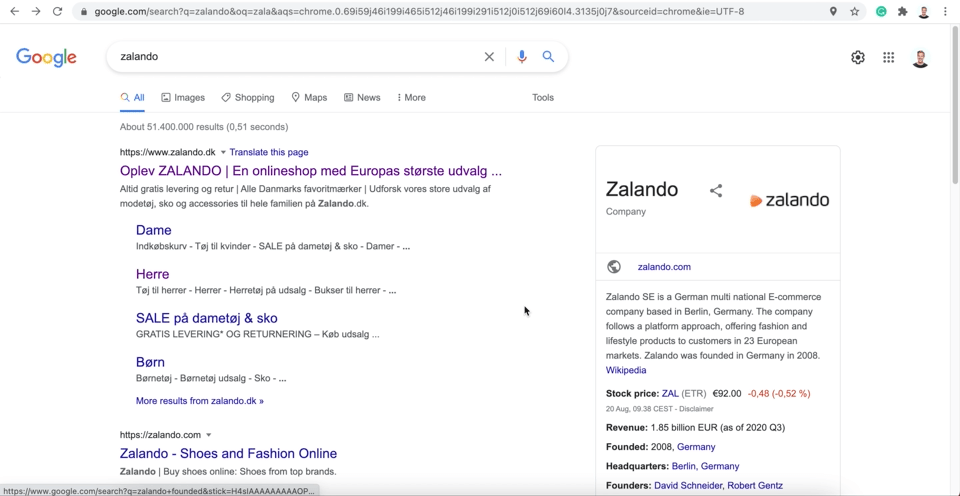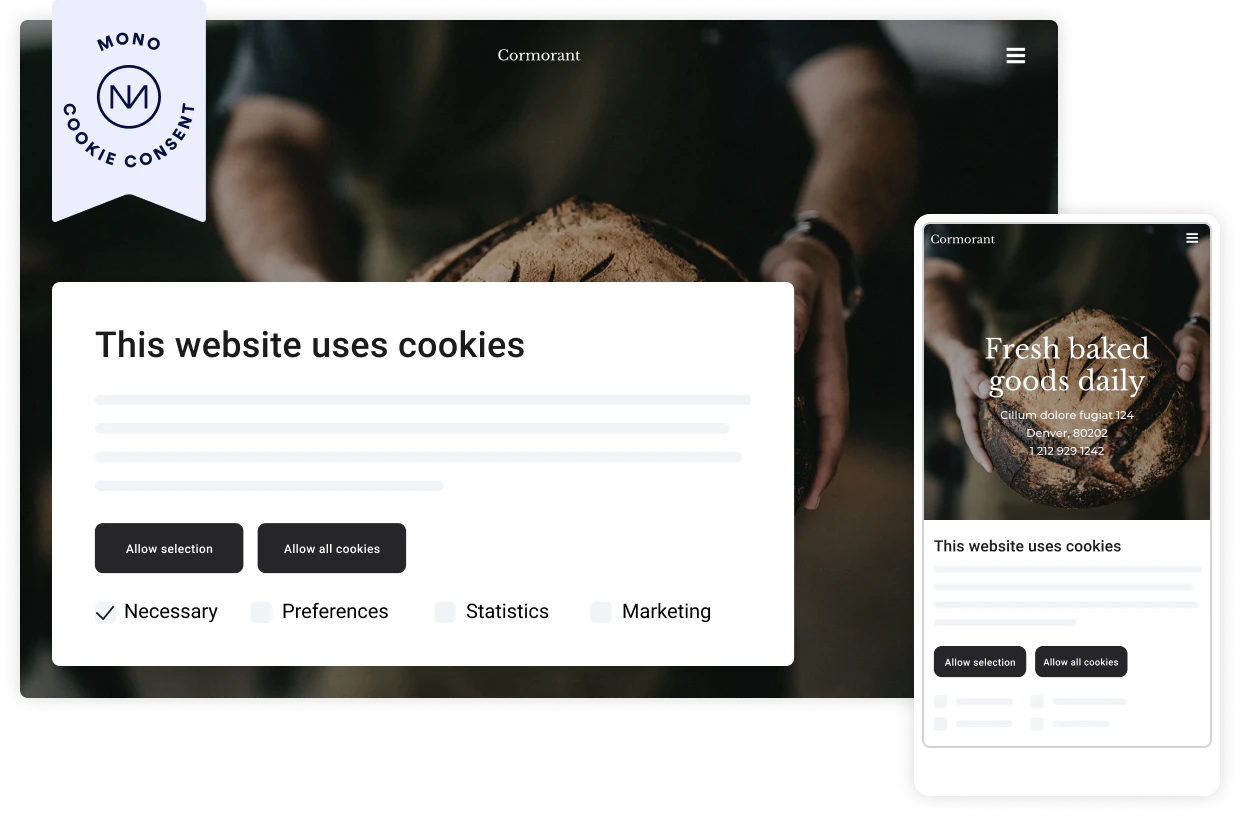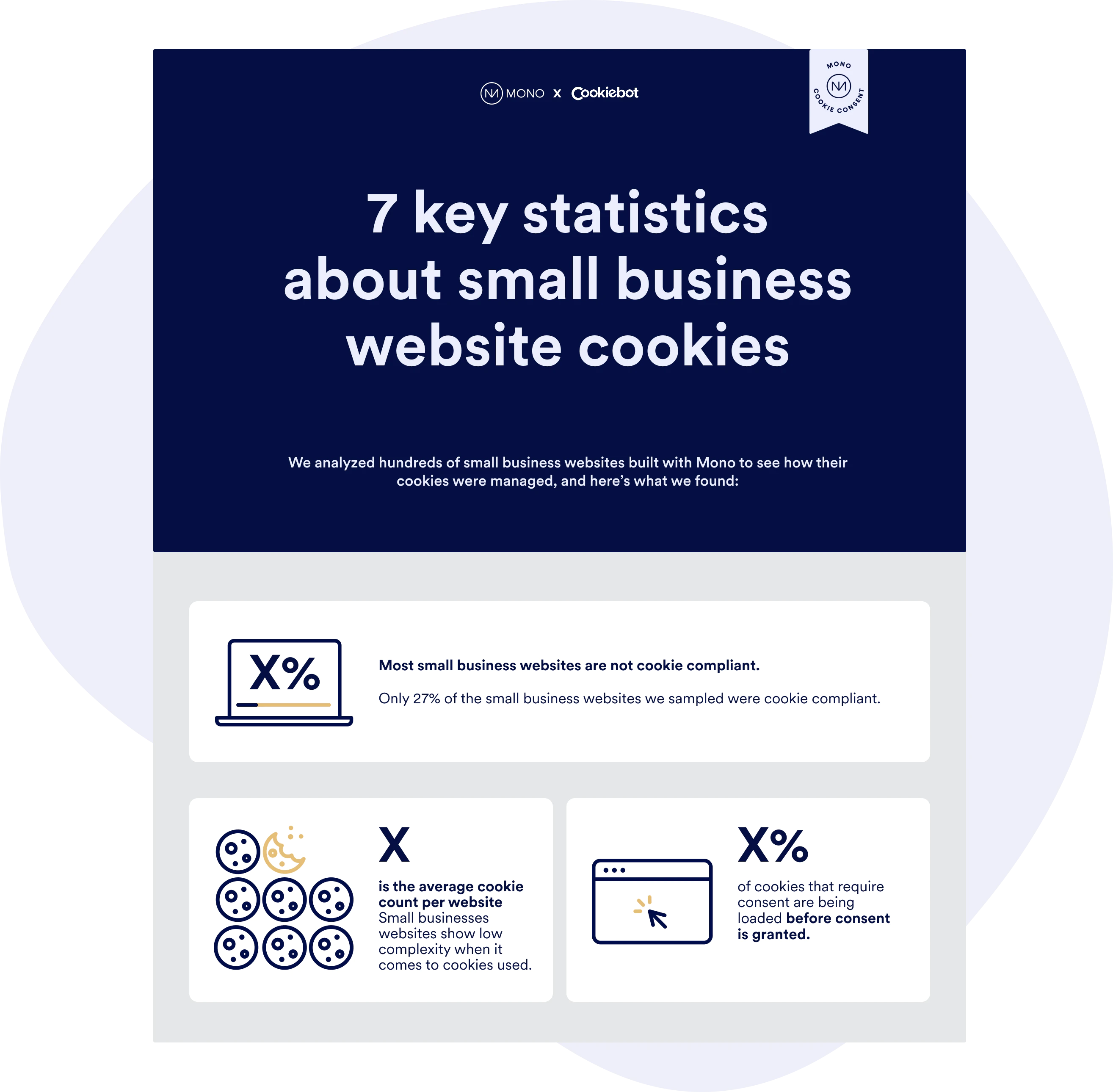Michael Halyk | 01/09/2021
Why do websites use so many cookies?
Why on earth does every website need a cookie banner? And why do websites use cookies anyways? Read on to find out.
In the past few years, internet users from across the globe have been greeted by a familiar sight every time they enter a new website. You already know what this looks like, but here is an example:

Some of these banners are more intrusive than others - some aren’t even legal in some regions (we’ll get into that later). But the question is, why is this necessary? What is a website cookie anyways? And why should you care about them?
What is a cookie?
Researching cookies is dangerous if, like me, you are tempted by baked sugary goodness. But we’re talking about website cookies here. According to our friends at Cookiebot, a website cookie is:
“..an umbrella term for tracking technologies that collect, store, and share data from end-users when they visit a website. The main reasons for using cookies include:
- Improving the experience on-site by recognizing users, recalling their logins and preferences;
- Personalizing and targeting advertising based on browsing history;
- Boosting sales by tracking previously viewed items, shopping preferences, engagement, and behavior on site.
- Most online businesses will have websites with dozens of cookies and trackers in use but will likely not know the full extent of cookies set by 3rd parties on their websites.”
And I would trust them with that definition - they are the experts that provide the technology behind our new product: Mono Cookie Consent
But this still doesn’t answer the title question...
Why do websites use so many cookies?
We sampled hundreds of small business websites built on the Mono platform, and the average amount of cookies set was 8. Keep in mind that small business websites are relatively simple in terms of page count and website structure, so this number is on the low end.
According to Cookiebot, websites use around 20 cookies on average, most of which are loaded by other third-party cookies, which makes them very difficult to detect.
This seems like a lot, and it is. But what are these cookies actually doing? But let’s take a look at a common use case for website cookies.
Let’s say you are doing some browsing at your favorite online clothing shop. You’ve spent 20 minutes finding the perfect outfit, and you’re ready to buy but realize that you don’t have your wallet on you. You’ll have to wait until you get home to check out.
This online store likely uses website cookies to remember the items in your cart, so the next time you visit their shop (assuming you’re using the same browser), all items will be ready and waiting for you in your shopping cart.
Last night I was browsing Zalando for a new sweater, I added one to my cart and decided to sleep on it. This morning I went back on Zalando and lo and behold, the sweater was waiting for me in my shopping cart.

Cookies can also be used for more nefarious purposes, which is why it is so important for the user to have full control over any cookies being placed in their browser.
With great power comes great responsibility
Cookies can be a powerful tool for advertisers, user researchers, product teams, etc. However, cookies must be used in a legal and transparent manner.
Not only is it important for website visitors to have full control over website cookies, in some areas of the world it is required by law. The most well-known is The Europeans Union’s General Data Protection Regulation, which stipulates exactly how website cookies should be communicated in terms of usage, storage, and gaining consent.
Then there are other local data protection regulations like California’s CCPA, South Africa’s POPIA, and many more. With all of these different regulations, how is it possible to manage cookies and end-user consent in a legally compliant way?
The answer is that you shouldn’t.
Automated cookie compliance
Instead of using your valuable time trying to stay on top of the changing data protection regulations, you should automate your cookie compliance with a cookie management platform like Mono Cookie Consent.

Mono Cookie Consent is available to all Mono partners and fills in the much-needed cookie compliance piece of our goal of providing the future-proof website builder.
Not a Mono Partner? Book a demo to see how you can offer websites to small businesses at scale.
